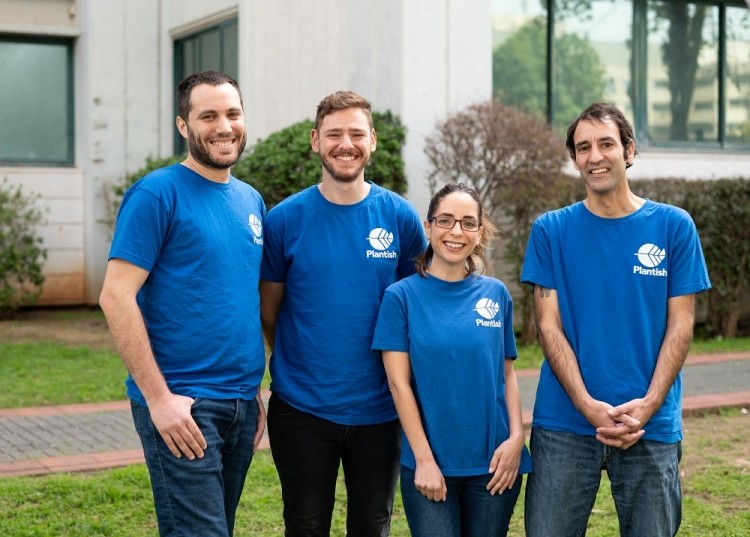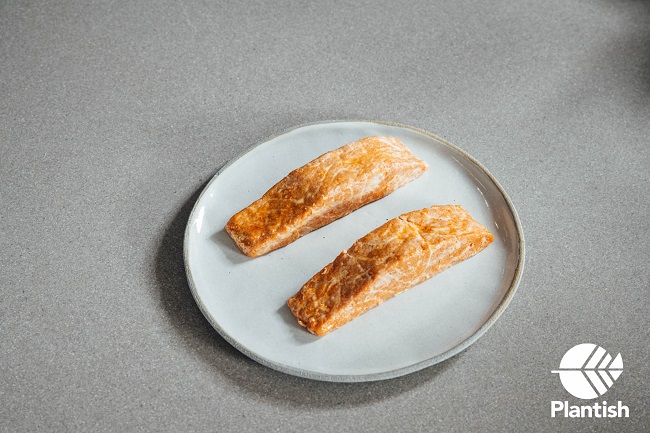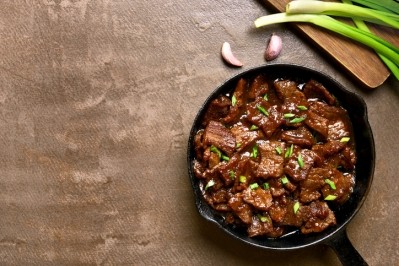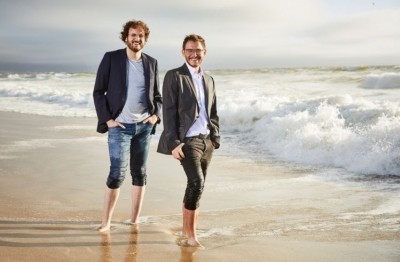Plantish raises $12.5m seed funding round to scale novel plant-based, whole-cut salmon production technology

The seed funding round was led by State Of Mind Ventures, with participation from Pitango Health Tech, Unovis, TechAviv Founder Partners, SmartAgro, E2JDJ, Alumni Ventures, FoodHack Syndicate and OurCrowd. The company also previously raised $2m in pre-seed funding in June 2021, from TechAviv Founder Partners, a venture fund backed by industry veterans and angel investors including Chef José Andrés, and Nuseir Yassin from Nas Daily.
The cash injection will be used to scale the company's technology from a small lab operation to a larger pilot facility in Tel Aviv, Israel, with a fully-automatic machine capable of producing 20kg of whole-cut plant-based salmon per hour.
"Raising money is important, but what is more important is that we get to a level where our product can scale to where it will be good enough to replace the conventional salmon from the plates of the world’s consumers – that’s the real milestone," Plantish co-founder and CEO Ron Ofek told FoodNavigator-USA.
"We don’t have the scale right now and also the product is not completely finalized. We need to work on it for a few more months to make the first version good enough so that we can go to market with it."
Reverse engineering salmon
While most of the alternative seafood market consists of minced products such as burgers, patties, and fish sticks, Plantish is differentiating itself with a plant-based whole-cut, boneless salmon filet product, which is not only more complex to create but has arguably higher consumer demand when looking at current eating trends across the globe.
According to Statista 2021 Fish & Seafood Report, over 70% of conventional fish is consumed globally in whole-cut form with salmon being among the most-consumed varieties of fish.
However, the market for plant-based seafood hasn't reached the same level of plant-based meat. According to the Good Food Institute, US retail sales of plant-based seafood grew 23% to just $12m in 2020 vs. 2019, accounting for less than 1% of the total plant-based meat and seafood category. On the flip side, this presents a massive white space market opportunity for companies to enter the burgeoning category, noted GFI.
"The problem has been that fish is so difficult to replicate until now," noted Ron.
The company claims that its product mimics the texture, taste, and nutritional value of conventional salmon thanks to its novel patent-pending processing methods which uses additive manufacturing (also known as 3D printing) along with legumes, omega-3 fat from algae, and other plant-based inputs that closely match the molecules found in salmon, explained Ron, who added that Plantish salmon can be cooked just like conventional salmon.
"We actually deconstructed the salmon to understand what it eats and which molecules are giving it its coloring, taste, and nutritional value, and then we go to the same source and take the same molecules for our fish. We have biologists in house doing that every day," he said.
By deconstructing salmon to understand its different components, the company's team of experts is able to create plant-based connective tissue and muscle tissue layers, one super-fine layer at a time, added Ron.
"With that we can create any kind of fish fillet for the future," he said.
'We believe that our product should be desired'
Plantish unveiled its first plant-based salmon filet in January 2022 intended for small-scale use at fine dining restaurants. By targeting and gaining acceptance with high-end chefs and patrons, Plantish can then pursue broader distribution with the mass market.
"We want to make sure the best chefs are using accepting our product... We believe that our product should be desired," added Ron who said that Plantish salmon should be on the menus of Michelin-star and other fine dining restaurants by the end of 2023 and eventually retail.
"Each day we’re reaching new and exciting achievements that are changing the food industry," said Ron.


















